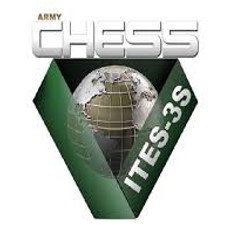In today’s rapidly evolving digital landscape, AI is becoming a ubiquitous force across industries. From automating workflows to accelerating data analysis, AI is fundamentally reshaping the nature of work. Yet amid this wave of transformation, one truth remains clear: the most future-proof organizations are not just investing in algorithms - they’re investing in people. More specifically, they’re investing in soft skills.
Soft skills - communication, emotional intelligence, adaptability, collaboration, and ethical reasoning - are emerging as indispensable assets in AI-enabled enterprises. These human-centric capabilities empower professionals to guide, govern, and enhance AI systems in ways that drive sustainable business value. While AI may automate the “what,” it’s soft skills that enable humans to determine the “why,” “when,” and “how.”
Amplifying AI’s Impact Through Human Judgment
AI delivers remarkable computational power and pattern recognition. But raw output, no matter how precise, lacks judgment. That’s where soft skills come in.
Consider a healthcare organization implementing AI to detect anomalies in medical imaging. While the system can identify patterns that suggest early signs of disease, it’s the medical professionals - with emotional intelligence and critical thinking - who interpret those findings, weigh patient history, and decide the best course of action. The data may suggest one path, but human judgment ensures that ethical, contextual, and emotional considerations are part of the final decision.
Soft skills help prevent blind reliance on algorithms. Professionals with strong decision-making capabilities ask, “Does this recommendation align with our business values? What are the potential downstream impacts? Is there bias in the training data?” These questions are not just technical - they’re human.
Bridging the Gap Between Technology and Business
One of the most overlooked barriers to successful AI adoption is the disconnect between technical innovation and business relevance. AI initiatives often fail not because the technology doesn’t work, but because organizations struggle to align AI capabilities with real-world needs.
Soft skills are the bridge. Business analysts, product managers, and data leaders must translate AI capabilities into language that resonates with business stakeholders. A logistics company, for example, may implement AI to optimize route planning.
The algorithm may be accurate - but unless business leaders understand the operational implications and end-users trust the system, the solution will stall. Effective communication, empathy, and the ability to build consensus are critical to bringing AI into operational reality.
Driving Collaboration in Cross-Functional AI Teams
AI projects do not exist in silos. They require collaboration across data scientists, engineers, operations managers, compliance officers, and subject matter experts. This cross-functional nature makes collaboration one of the most valuable soft skills in the AI era.
Take the case of a financial services firm developing an AI model to detect fraudulent transactions. Data scientists understand the algorithm, but domain experts understand the nuances of legitimate versus suspicious behavior.
Soft skills such as active listening and adaptability ensure these perspectives are integrated - leading to more robust, explainable AI systems. Moreover, conflict resolution and the ability to manage ambiguity are essential when project priorities evolve or unforeseen obstacles arise - both of which are common in AI development environments.
Building Trust in AI Through Communication
Trust is the currency of AI adoption. Without it, even the most accurate algorithms will go unused. And trust isn’t built by technical performance alone - it’s cultivated through transparency, empathy, and clarity.
Employees and customers alike want to understand how AI is being used, what decisions it influences, and how it affects them. Soft skills enable professionals to explain AI outputs in a relatable and non-threatening manner.
In sectors like insurance or credit lending, for instance, consumers want to know why a decision was made. Professionals with strong communication and interpersonal skills are essential to articulating AI logic and limitations with honesty and humanity.
Leading with Empathy in Times of Transformation
AI often accompanies structural shifts, role redefinitions, and operational change. That’s why leadership soft skills - especially empathy, active listening, and cultural sensitivity - are vital.
Consider a manufacturing organization that introduces AI-driven automation on the production floor. Beyond the technical deployment, leaders must engage in open dialogue with the workforce, address concerns about job displacement, and create psychologically safe environments for upskilling.
Leaders who lead with empathy are better equipped to retain talent, preserve morale, and foster a culture of continuous learning.
Supporting Ethical and Responsible AI Use
AI raises profound ethical questions around fairness, accountability, and societal impact. While AI can flag statistical anomalies, it cannot weigh moral implications. Humans must do that.
Soft skills are key to leading responsible AI governance. In industries like HR technology, where algorithmic bias can have life-altering consequences, ethical reasoning and inclusive dialogue are non-negotiable.
Professionals must evaluate how algorithms affect different groups, challenge assumptions in data models, and ensure that AI is aligned with both corporate values and public trust.
Enhancing Customer and Stakeholder Experience
Despite the rise of AI in customer engagement - chatbots, recommendation engines, predictive personalization - human connection still matters. Customers want speed, but they also want empathy. They appreciate AI-powered services, but they remember the human interactions that make them feel seen and valued.
In AI-augmented service environments, employees with strong soft skills ensure that automation enhances, rather than erodes, the customer experience. For example, a telecom company using AI to resolve service tickets more efficiently can still empower its human agents to handle escalations with compassion and tact - leading to higher customer satisfaction and loyalty.
Future-Proofing Careers and Organizations
Technical tools evolve rapidly, but soft skills endure. In fact, they become more valuable as roles shift from execution to interpretation, from process to problem-solving. AI may change job functions, but the ability to communicate, collaborate, and lead through change will remain critical.
Professionals who develop strong soft skills are more resilient, adaptable, and capable of navigating the ambiguity that comes with technological disruption. Organizations that invest in soft skill development - through training, coaching, and cultural reinforcement - are better positioned to scale AI sustainably while maintaining a human-centric foundation.
Conclusion
In AI-enabled organizations, soft skills are not a “nice to have.” They are a strategic imperative. These uniquely human capabilities allow us to ensure that AI serves not only efficiency and scale - but also empathy, trust, and purpose.
AI can process information. But it takes humans to create meaning, navigate complexity, and make decisions that reflect our highest values. And that’s what soft skills make possible. In the age of AI, soft skills are not only relevant - they’re indispensable.
To build and enhance business analytics skills for the AI era for you and your team, take a look at Inteq’s Soft Skills training course and Inteq’s Business Systems Analysis Specialist certificate program and Data Modeling and Analytics Specialist certificate program.
* * * * *
Master of Chaos Newsletter (try it)
Subscribe to my blog | Visit our Knowledge Hub
Visit my YouTube Channel | Connect with me on LinkedIn
Check out our Business Analysis Training Courses & Consulting Services




















